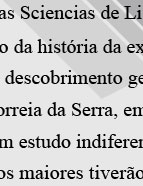

................................
Diplomatic History was not necessarily episodic, nor was it destined to be, but it struggled to break free from the brief timeframe imposed on it by the positivist belief that truth resided in documentary authenticity and could be uncovered through court or parliamentary debates, ambassadorial correspondence, or analyses of treaty negotiations and alliances. The so-called "high politics" hovered above the contingencies of more concrete trivialities. As early as 1929, Henri Hauser had begun to offer critiques by drawing attention to the "underlying layers," foreshadowing Pierre Renouvin's concept of "deep forces" (1953). However, it was the historians associated with the Annales School in France who would discredit Diplomatic History: first, Lucien Febvre, during the challenging years of the Great Depression, and then Fernand Braudel, after World War II, who saw the significant political events of Diplomatic History as mere "surface agitation" or a poussière de faits-divers.
By integrating history into the broader field of social sciences, Lucien Febvre and Marc Bloch highlighted the importance of studying the constraints, factors, and rhythms of human behaviour transformation over time. The Annales paradigm rejected the primacy of political, individual, and chronological elements that characterised Diplomatic History, seeking a comprehensive history of societies that encompassed a multitude of new domains. Against the linear and continuous concept of time, Braudel proposed a plurality of historical times. This approach represented a kind of "cultural revolution," as termed by Jean-Baptiste Duroselle, which swept political history, diplomatic history, and biography away from the historiographical questionnaire deemed intelligent, even though American, English, and German historians continued to study the relations between states. However, the connections between the new historians and their predecessors' legacy were much stronger than they themselves acknowledged.
A translation of a work directed by Vladimir Potemkin emerged in Paris in 1946 under the title Histoire de la Diplomatie. This work examined international relations from antiquity to 1939, with the aim of “contributing to the understanding of foreign policy issues and evaluating diplomatic actions.” It had an unexpressed but evident concern—particularly in the voluminous third volume, entirely dedicated to the twenty-year period between the two World Wars—of justifying the USSR’s foreign policy. However, despite the clear influence of Marxist dialectics, the approach was still distinctly political.
